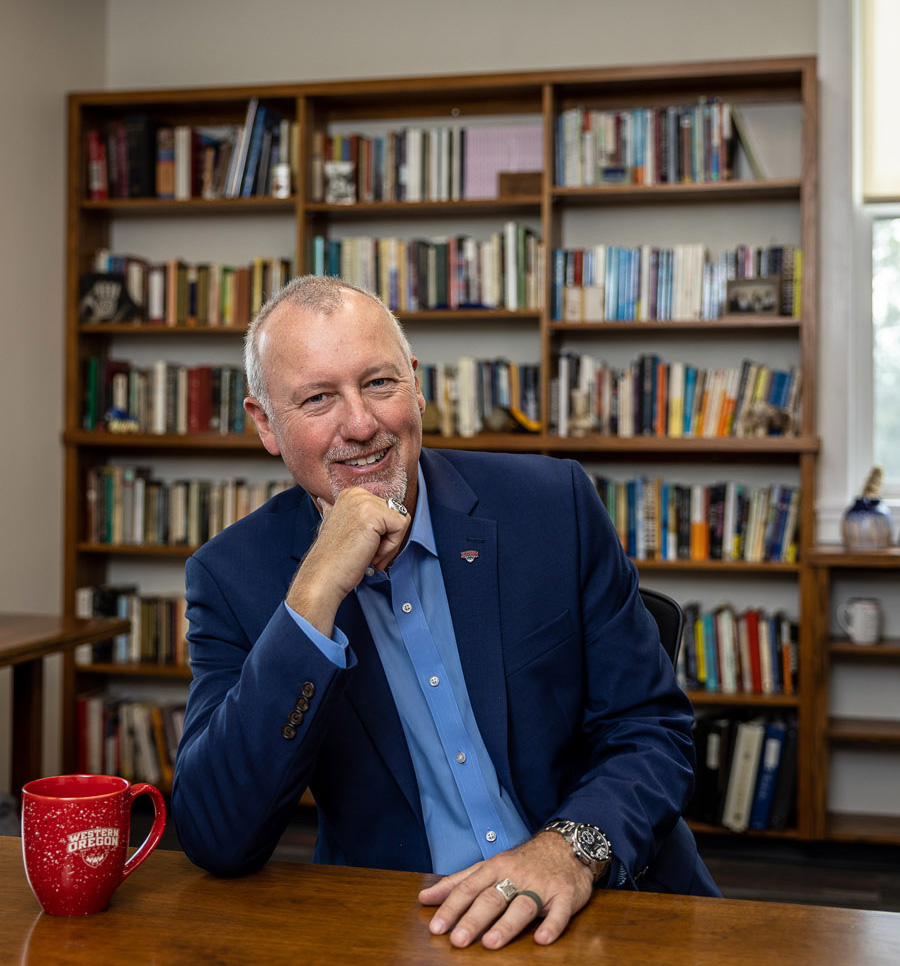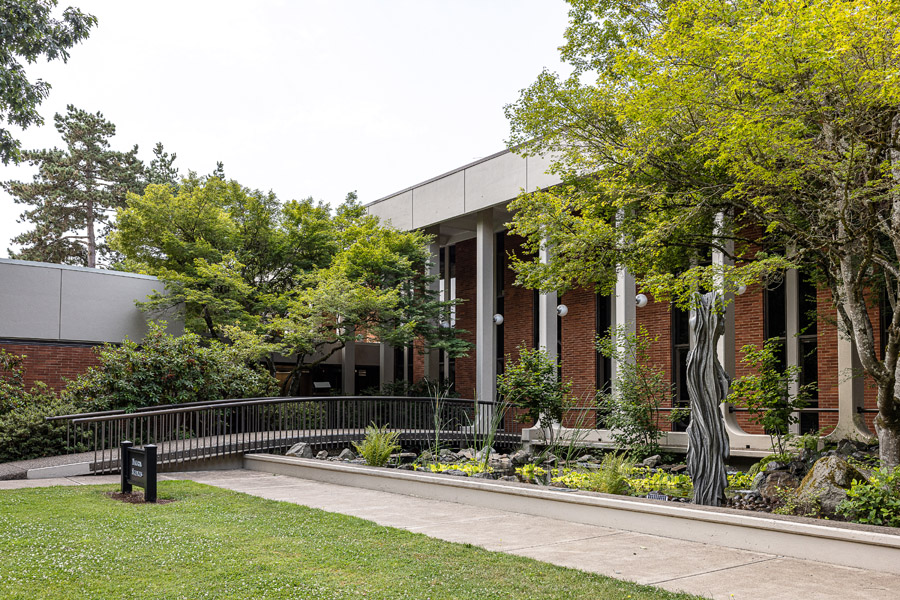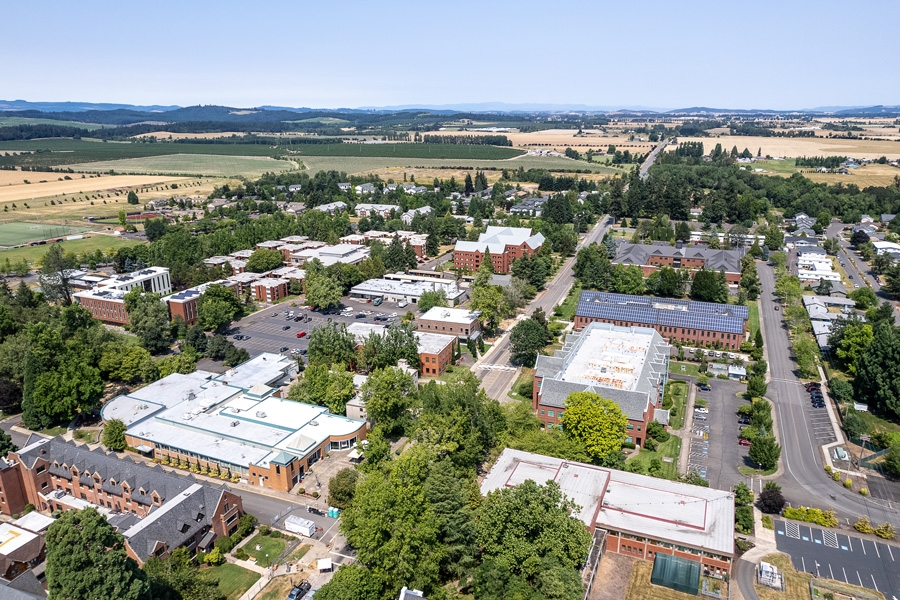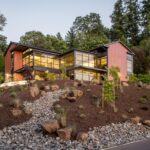Brand Story – Western Oregon University’s new president draws on personal experience to help a diverse student body succeed.
When Dr. Jesse Peters first arrived at prestigious Emory University in Atlanta, Georgia, he felt like a fish out of water. As a first-generation college student from the rural South, he struggled to navigate aspects of university life that his classmates handled effortlessly. Today — with a PhD and career in academia under his belt — he takes the helm of Western Oregon University (WOU) with first-hand knowledge of how to support a diverse student body.
“It’s exciting to step into a position to lead this university into its next phase, and I think that next phase is going to be one that grounds diversity, equity, inclusion and access [DEIA] into the fabric of the school,” says WOU president Dr. Peters. “The world really changes, in positive ways, with the help of America’s regional universities. This is where students get degrees that change their lives and the lives around them.”
Home to a high percentage of first-generation college students, WOU, under its new leadership, will develop initiatives calibrated to their needs — such as a task force made up of first-generation faculty and staff, and a local chapter of the National Honor Society for first-generation college students.
“I know I personally would have benefited from more acknowledgment of the challenges particular to first-generation students. WOU understands these challenges,” he adds.
Dr. Peters, whose parents grew up sharecropping in Georgia, arrived at Emory with different skillsets and experiences than most of his wealthier classmates. Everything, from financial aid to proper academic conduct to office hours, was a mystery.
 Dr. Jesse Peters
Dr. Jesse Peters
“When first generation students start college, they experience a mix of emotions. For me, I didn’t know how to navigate the smallest things. I didn’t even know what questions to ask,” he recalls. “The anxiety and fear that came with that left me wondering if I should just go back home and do something else. I’ll always remember that feeling, and it shapes how I guide an institution, especially one full of students like me.”
With most of its students dependent on loans to put themselves through school, WOU takes seriously its responsibility to equip them with worthwhile degrees.
“The things that were afforded to me after I got my degree were life-altering, so I’m looking forward to guiding students down a similar path,” he notes.
With a lengthy track record of developing relevant academic programs — spanning nutrition, environmental science, computer engineering, musical theater and beyond — Dr. Peters works with the community, faculty and staff to launch classes and degrees that reflect the needs of contemporary society at the regional, state and national level.
“Universities and communities are symbiotic. So many innovations have come out of universities trying to improve society,” he explains. “I think there’s also innovation to be had as we start up new programs. If we’re establishing a Master’s of Public Administration degree, for example, we must look at how that can be a different program from the other 150 or so existing programs in the country.”

In his previous position as Fort Lewis College’s Dean of Arts and Sciences, Dr. Peters helped to develop several key programs, including a new department (Environment & Sustainability) and major (Borders & Languages).
His administrative productivity hinges on his ability to create collaborative environments that get positive work done. In other words, his specialty is team building and teamwork, which he attributes to a worldview shaped by indigenous teachings.
A non-Native person who grew up not knowing anyone who identified as Native American, Dr. Peters was drawn to Indigenous literature.
“I connected with how the literature spoke to the breaking of stereotypes. Here’s the real stuff. Here are the real voices of people and communities,” he recalls. “It also appealed to my sensibility of connection, community over individualism, living in balance, reciprocity. These values appeal to me greatly.”
The knowledge he gathered while pursuing a PhD in Native American Literature strengthened his leadership approach. Early into his teaching career he found himself enjoying administration — chairing committees, forming teams and problem solving alongside colleagues: “I enjoyed it because I was doing it for other people.”

As he moves on to his next adventure at Western Oregon University, he brings with him fresh lessons learned during the pandemic — a time that saw universities reevaluate their roles, begin to understand trauma and question status quos.
When asked what determines a university’s success, he admits that it is more complex than the token answer: student success. For him, the key to that success intertwines with the notion of valuing people, exploring ideas, improving the human condition, and prioritizing DEIA initiatives. On his first visit to WOU, Dr. Peters sensed a community already in pursuit of these ideals.
“I was struck by the dedication of its faculty and staff. The pride they have in their students and the institution itself is unmatched anywhere,” he concludes. “It’s the people and cultural attitudes, not the buildings, that make Western Oregon special. I’m excited to be a part of its future.”
Brand stories are paid content articles that allow Oregon Business advertisers to share news about their organizations and engage with readers on business and public policy issues. The stories are produced in house by the Oregon Business marketing department. For more information, contact associate publisher Courtney Kutzman.




